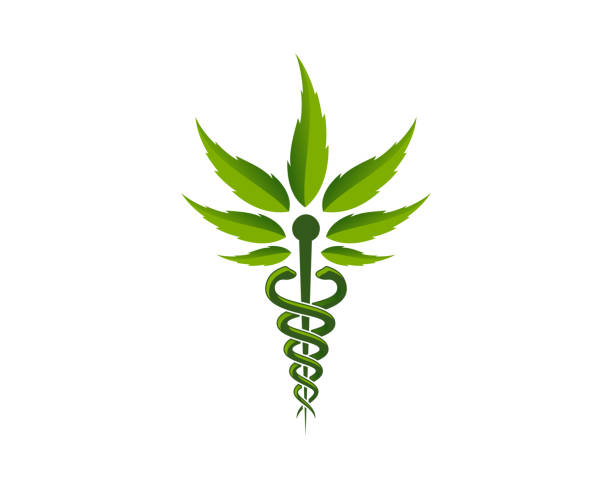Checking Out the Diverse Use Medical Cannabis in Modern Medication
In the realm of contemporary medicine, the expedition of clinical marijuana has unveiled a range of potential applications that expand far beyond its conventional usage. From pain administration to neurological disorders, the versatility of marijuana in attending to different health and wellness problems has actually piqued the rate of interest of health care experts and researchers alike. As we browse through the intricate landscape of medical marijuana in modern medical care, it ends up being obvious that its diverse usages hold pledge for ingenious therapeutic treatments.
Pain Monitoring
Pain administration using medical cannabis has amassed enhancing attention in the area of healthcare because of its potential efficacy in providing alleviation for numerous kinds of acute and persistent pain conditions. The cannabinoids existing in clinical cannabis, particularly tetrahydrocannabinol (THC) and cannabidiol (CBD), are understood for their analgesic properties. These compounds engage with the endocannabinoid system in the body, which plays an essential duty in regulating discomfort experience.

As even more research is carried out and regulations develop, medical cannabis can potentially play an extra substantial role in the multimodal technique to discomfort monitoring in medical care.
Epilepsy Therapy
Checking out the efficiency of clinical marijuana in handling epilepsy has actually revealed appealing results in enhancing seizure control and high quality of life for clients with treatment-resistant forms of the problem. In recent years, research into the usage of medical marijuana, specifically substances like cannabidiol (CBD), has actually acquired focus for its prospective therapeutic advantages in epilepsy management.
Researches have actually indicated that CBD, a non-psychoactive part of marijuana, may aid lower seizure frequency and severity in specific types of epilepsy. The precise systems of how CBD connects with the brain to manage seizures are still being investigated. Nevertheless, the existing data recommends that medical marijuana can be an important enhancement to the treatment options readily available for individuals with refractory epilepsy. As further study unfolds, the role of clinical cannabis in epilepsy treatment remains to be a location of energetic expedition in the clinical community.
Anxiety Alleviation
Study researches have actually shown the possibility of medical marijuana in supplying relief for individuals suffering from stress and anxiety conditions. This has actually led researchers to check out alternative options, consisting of medical cannabis.
Cannabis has compounds recognized as cannabinoids, which communicate with the body's endocannabinoid system. This system plays a vital role in managing numerous physiological processes, including mood and stress and anxiety reactions. By targeting the endocannabinoid system, medical cannabis may assist minimize signs and symptoms of anxiety.
Studies have actually shown that certain cannabinoids, such as cannabidiol (CBD), have anxiolytic properties, implying they can reduce stress and anxiety levels. CBD is non-psychoactive, unlike tetrahydrocannabinol (THC), another cannabinoid found in cannabis. This makes CBD an appealing choice for individuals seeking anxiety relief without experiencing the psychoactive results typically related to cannabis use.
Cancer Cells Sign Control
Offered the encouraging effects of medical cannabis on anxiousness alleviation, its possible application in aiding take care of symptoms connected with cancer cells is an area of raising interest amongst scientists and medical care experts. Cancer clients typically experience numerous distressing signs such as pain, nausea or vomiting, loss of appetite, and sleep problems as a result of the illness itself or the side results of treatment. Clinical cannabis, with its statcare urgent care substances like THC and CBD, has these details shown pledge in relieving these signs.
Discomfort management is just one of the most commonly identified advantages of clinical cannabis in cancer care. Research studies have actually suggested that marijuana can help minimize discomfort levels, improving the lifestyle for people undergoing cancer cells treatment. Additionally, marijuana has antiemetic buildings that can assist in minimizing queasiness and vomiting, typical negative effects of chemotherapy. In addition, its ability to boost cravings could be helpful for individuals experiencing weight-loss due to cancer cells or its treatments.
Neurological Problems Support

In epilepsy, for instance, CBD has been studied for its prospective to reduce the frequency and seriousness of seizures in people that do not react well to conventional anti-seizure medicines. THC has revealed guarantee in minimizing muscle mass spasticity and discomfort in people with numerous sclerosis. Clients with Parkinson's condition have actually reported renovations in electric motor symptoms such as shakes and strength after utilizing clinical cannabis.
While even more research is required to fully comprehend the mechanisms and long-term effects of clinical marijuana on neurological disorders, current evidence suggests that maybe a beneficial addition to conventional therapy alternatives for clients looking for sign alleviation. (Medical Cannabis Doctor)
Verdict
To conclude, medical marijuana has demonstrated its performance in numerous medical applications, consisting of pain administration, epilepsy therapy, stress and anxiety alleviation, cancer cells symptom control, and support for neurological problems. The varied uses clinical marijuana in contemporary medication emphasize its potential as a useful tool for Continued health care experts in improving individual end results and quality of life. More study and expedition of its therapeutic benefits are warranted to completely comprehend and harness its medical residential properties.
Discomfort monitoring making use of medical cannabis has actually gathered boosting interest in the area of health care due to its possible effectiveness in offering relief for different types of chronic and acute pain conditions.Researches have revealed encouraging outcomes relating to the use of medical marijuana in minimizing neuropathic pain, arthritis, migraine headaches, and other forms of pain that are typically testing to treat with typical medications. Clients who have not responded well to conventional discomfort administration approaches may find alleviation with clinical marijuana. As further research unravels, the function of clinical marijuana in epilepsy therapy proceeds to be an area of energetic exploration in the clinical neighborhood.
In verdict, clinical marijuana has actually demonstrated its performance in different medical applications, consisting of pain management, epilepsy treatment, anxiety alleviation, cancer signs and symptom control, and support for neurological problems. (Medical Cannabis Doctor)